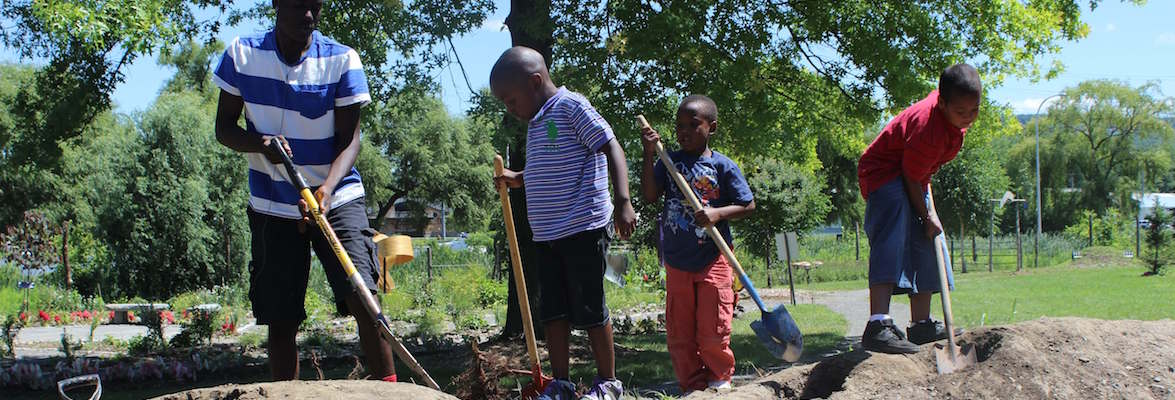Written by Cristina Quinn:
The Ithaca Children’s Garden has focused on positive youth development since 1998. As opposed to allotment-style gardens, ICG serves as an educational space and uses hands-on, garden-based learning to empower children and teens. Their mission is to “inspire the next generation of environmental stewards.” Despite the name, the Ithaca Children’s Garden serves people of all ages. While much of their programming focuses on children, everyone is welcome to explore the garden year-round. In just one year, they received over 69,000 visitors ranging from infants to senior citizens.
In 2016, the garden served over 8,100 children through direct programming. Children ages 2.5-6 years old were able to take part in the Playful Nature Explorers program where they developed an understanding of the seasons through nature and child-led play. ICG’s longest running program, Teen Urban Farmers, hires 15 teens every summer to harvest produce and manage their farm stand while learning valuable entrepreneurial skills along the way. Over the summer, the garden offers a 10-week summer camp as well as a Counselor-In-Training option for experienced campers who want to stay involved. During the school year, ICG works closely with school districts to provide activities both during the day and after school hours. They host school events such as field trips and various demonstrations.
The Ithaca Children’s Garden organizes multiple annual festivals such as their Festival of Fire and Ice in February, International Mud Day in June, and Scarecrow Jubilee in autumn. These events attract people from all over Upstate New York and give them an opportunity to experience the outdoors in an interactive, family-friendly environment.
Over the past two years the garden has facilitated professional development for educators, other public gardens, and cities interested in starting adventure playgrounds or green spaces in an effort to share what they’ve learned with as many people as possible.
ICG Executive Director Erin Marteal believes that the garden’s success comes from the “broad and deep community commitment and support.” Marteal is thankful that the community values connecting children with the outdoors through food, nature-play, gardening, and exploration.
